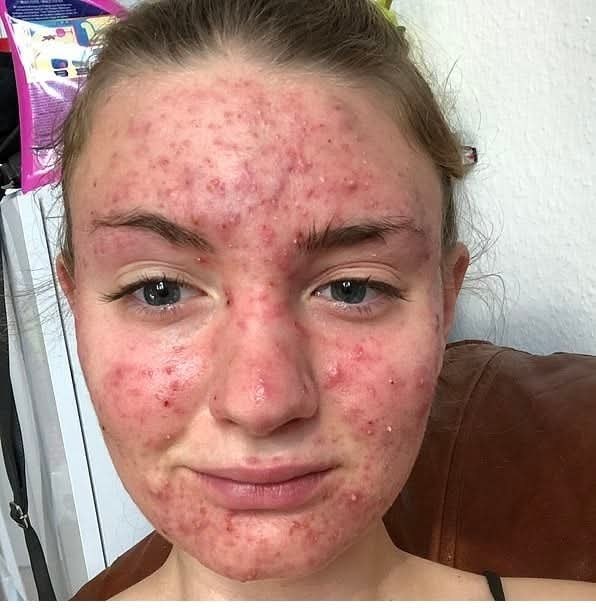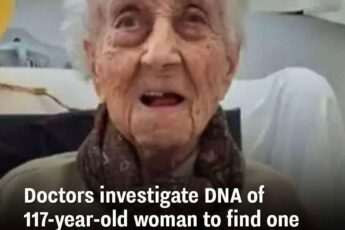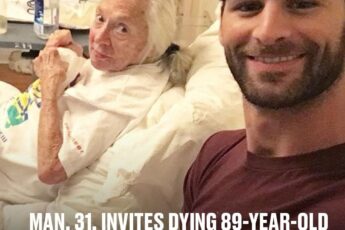Her body was itching relentlessly, red patches spreading across his skin like wildfire. At first, I assumed it was just an allergy—something minor, maybe a reaction to a new laundry detergent or even something he ate. It seemed logical, because allergies are common and easy to treat, and I wanted to believe it was nothing more serious than that. We tried everything we could think of on our own: over-the-counter antihistamines, cooling gels, soothing creams. I rubbed lotion gently over the irritated skin, hoping to give him even a moment of relief. But nothing worked. The itching only grew worse, and soon it was robbing him of his sleep. At night, I would hear him tossing and turning, scratching until his skin broke, sighing in frustration because he couldn’t get comfortable. I would lie awake beside him, helpless, listening to his restless movements in the dark. The days became long and exhausting as fatigue and irritability set in.
Concerned, I finally insisted we go to the doctor. I told myself it would be a quick visit, that the doctor would confirm my suspicion of an allergy, prescribe something stronger, and send us home with reassurance. We both needed that reassurance—he needed relief from the constant torment of his own skin, and I needed to know that what I was watching unfold wasn’t something bigger, something darker.
But when we arrived at the clinic and the doctor began his examination, I noticed his expression change. At first, he had the easygoing, casual demeanor that most doctors use to keep their patients calm. But then his brow furrowed, his lips pressed into a thin line, and his movements became slower, more deliberate. He examined the red patches more carefully, asked more questions, and called in a nurse. His tone of voice shifted too; what began as routine questions turned into hushed, serious instructions to the medical staff. He ordered blood tests and scans, and though he spoke gently to us, I could sense an unspoken urgency in the room. My stomach twisted with dread. I sat there, trying to read between the lines of his words, trying to figure out what it was he wasn’t saying aloud.
The waiting was the hardest part. Days stretched out painfully as we awaited the results, each one filled with a mix of hope and fear. I kept telling myself it was probably just something unusual but still harmless. Maybe an infection, maybe a rare type of allergy that just needed stronger medication. But a small voice in the back of my mind kept whispering that the doctor’s reaction had meant something worse. Every time the phone rang, I jumped. Every time I saw the red patches spreading further, my chest tightened. I wanted to believe in the best but couldn’t shake the feeling that the worst was coming.
And then the call came. We went back to the doctor’s office, my hands clammy as I clutched his for comfort, though I don’t know if it was more for him or for me. The doctor sat across from us, his face heavy with the weight of the news he had to deliver. He spoke slowly, carefully, as though measuring each word. “It’s not an allergy,” he began, and already my heart was racing. He paused, drew in a breath, and then said the word that shattered everything I thought I knew about our lives: cancer.
The moment that word left his lips, it hit me like a physical blow. It was as if the air had been knocked out of me. My ears rang, and the world around me blurred. Cancer. The word seemed too big, too sharp, too final. I glanced at him, trying to gauge his reaction, but his face was unreadable, locked between shock and disbelief. My own mind was scrambling to process what this meant. This wasn’t the answer I had expected or prepared for. This wasn’t a prescription for cream or a suggestion to switch detergents. This was a diagnosis that carried with it the weight of fear, uncertainty, and an entirely new reality.
In that instant, my thoughts spun wildly. What stage was it? What kind of treatment would be needed? Could it be cured? Would he suffer? Would we have enough time? All these questions flooded my mind, but none of them had answers yet. I reached for his hand again, holding it tightly, grounding myself in the feel of his skin against mine. I wanted him to know he wasn’t alone in this, that no matter what we were about to face, we would face it together.
As the doctor explained next steps—further tests, referrals to specialists, treatment options—his voice seemed distant, muffled, like I was underwater. I tried to focus, to absorb the details, but my heart was pounding so loudly it drowned out most of what he was saying. I remember nodding along, my head heavy, though I barely processed his words. My mind kept circling back to that single moment: when the word “cancer” was spoken aloud and everything changed.
That night, when we got home, the silence was deafening. We sat together, both lost in our own thoughts, the air thick with fear. He tried to be strong, putting on a brave face for me, but I could see the worry in his eyes, the questions he didn’t ask out loud. I wanted to comfort him, to promise everything would be okay, but I didn’t know if I could make that promise. All I could do was sit beside him, hold his hand, and whisper softly, “We’ll get through this together.”
And deep down, I meant it. No matter how uncertain the road ahead was, no matter how terrifying the word cancer felt, I knew one thing for certain: I would not let him face it alone.






